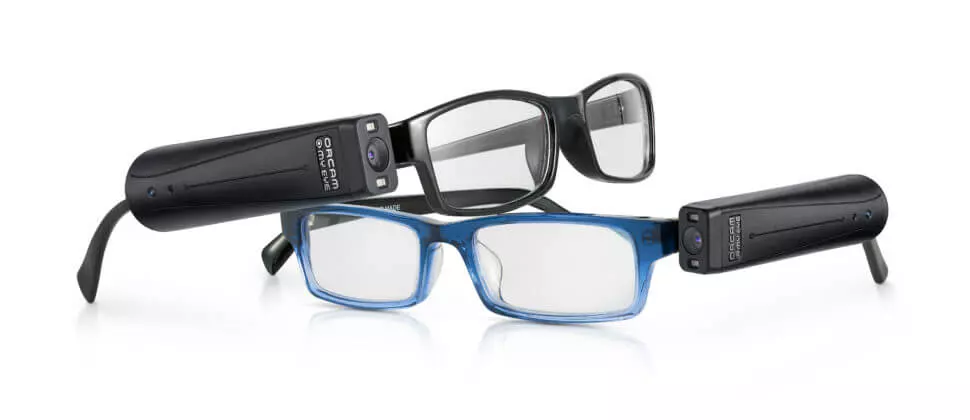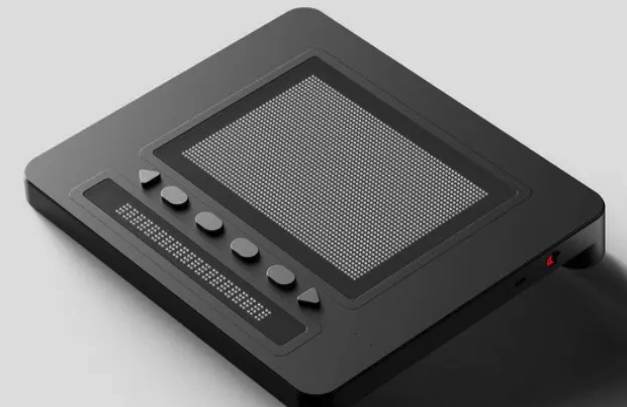Empowering Self-reliance With Assistive Modern Technology for the Blind
The integration of assistive technology right into the lives of individuals with aesthetic disabilities stands for a significant advancement in advertising freedom and self-sufficiency. From cutting-edge display visitors to advanced smart walking sticks, these tools not only boost everyday navigation and interaction but likewise empower users to engage meaningfully in various elements of life. As we discover the myriad advantages and real-world applications of these modern technologies, it ends up being vital to analyze the hidden factors that add to their effectiveness and the possibility for future advancements in this important area.
Summary of Assistive Technology
The growth of assistive innovation is based in concepts of inclusivity and empowerment. Advancements in software application, hardware, and sensory improvements give individuals with choices tailored to their particular demands. From screen visitors that transform text to speech, to responsive gadgets that communicate details with touch, these devices change the method individuals engage with their surroundings.
Along with useful applications, assistive modern technology promotes better social inclusion and engagement in numerous fields, including education and employment (AI-powered visual aids). As r & d remain to evolve, the possibility for assistive technology to further boost the lives of visually damaged people stays promising, leading the method for a more fair culture where everyone can thrive
Kinds Of Assistive Tools
A range of assistive tools have emerged to support individuals with aesthetic disabilities, each created to satisfy details demands and enhance day-to-day performance. These tools vary from low-tech options to state-of-the-art technologies, offering diverse choices for individuals.
Low-tech gadgets include magnifiers and large-print products that assist in analysis and writing. Braille tools, such as Braille slates and styluses, make it possible for tactile reading and communication. Orientation and movement help, like white canes, aid customers browse their environment safely.
On the higher end of the range, digital zoom systems and screen viewers provide substantial assistance. Electronic magnifiers enable users to expand text and pictures on screens, while screen visitors convert electronic material right into synthesized speech, assisting in access to details on smartphones and computers.
Smart device applications likewise play an important role, giving attributes like text recognition and navigating support. Wearable modern technology, such as smart glasses furnished with augmented truth, is becoming a promising device to enhance situational understanding.
Advantages of Assistive Innovation
The integration of assistive modern technology dramatically enhances the lifestyle for individuals with aesthetic disabilities. These innovations empower users by promoting independence, enabling them to navigate their settings better and execute daily tasks with better convenience. As an example, display readers and magnification software application allow individuals to accessibility electronic information, cultivating expert and educational possibilities that might have formerly run out reach.
Furthermore, assistive devices such as smart walking canes and general practitioners applications provide real-time navigation support, improving movement and safety. This raised autonomy not only boosts self-esteem yet additionally motivates social interaction, allowing users to participate even more fully in their communities.
Assistive modern technology also assists in interaction, helping users get in touch with others via voice acknowledgment and text-to-speech applications. This capacity is essential for keeping partnerships and accessing essential details.
In addition, the modification alternatives offered with numerous assistive technologies ensure that individuals can tailor tools to their details requirements, further boosting functionality and effectiveness. Overall, the benefits of assistive innovation for individuals with aesthetic disabilities are profound, advertising an extra inclusive culture where everyone can seek their goals and ambitions.
Study and Success Stories
Highlighting the transformative effect of assistive modern technology, countless study show just how individuals with aesthetic disabilities have efficiently incorporated these tools into their everyday lives. One compelling instance includes an university student who used screen reading software application to navigate on the internet resources and academic products successfully. This modern technology not just promoted her education and learning however likewise enhanced her confidence in joining discussions and team projects.
An additional situation study includes a specialist that uses a smart device application created for navigation and item recognition. By utilizing this app, visit site he has actually regained autonomy in both his individual and work settings, allowing him to commute separately and engage with coworkers a lot more successfully.
Additionally, a retiree shared her experience with braille e-readers, which allowed her to access a huge variety of literature and remain gotten in touch with her area with book clubs.
These success tales highlight the crucial function of assistive modern technology in promoting independence, improving lifestyle, and advertising social assimilation for individuals with aesthetic disabilities (Smart glasses for the visually impaired). By welcoming these ingenious tools, customers can overcome difficulties and confiscate opportunities that add to their personal and expert satisfaction

Future Fads in Assistive Technology
Development in assistive modern technology is poised to redefine the landscape of assistance for people with visual problems. Arising patterns emphasize the assimilation of synthetic intelligence (AI) and equipment understanding, which enhance the performance of devices that assist with navigation and details accessibility. For circumstances, AI-driven applications are currently capable of analyzing visual data in real-time, allowing individuals to engage with their atmosphere extra independently.
Additionally, the advancement of wearable technology is progressing swiftly. Smart glasses equipped with augmented reality (AR) can supply audio descriptions of surroundings, transforming how users connect with public rooms. These tools not just advertise autonomy however also foster social addition.
In Addition, the Net of Things (IoT) is making homes smarter, permitting seamless connectivity between assistive tools and day-to-day devices. This connectivity equips customers by making it possible for computerized responses and voice-activated controls tailored to individual demands.
Verdict
To conclude, assistive modern technology plays an essential role in equipping individuals with visual disabilities by boosting their freedom and involvement with their environments. The varied variety of tools and applications readily available not only assists in have a peek at this site navigating and interaction but likewise advertises social assimilation and possibilities for individual and professional growth. As advancements proceed in this area, the possibility for enhancing the lifestyle for those with visual disabilities will certainly expand, cultivating better freedom and empowerment.

Comments on “Braille Displays and Notetakers: Must-Have Tools for Learning and Work”